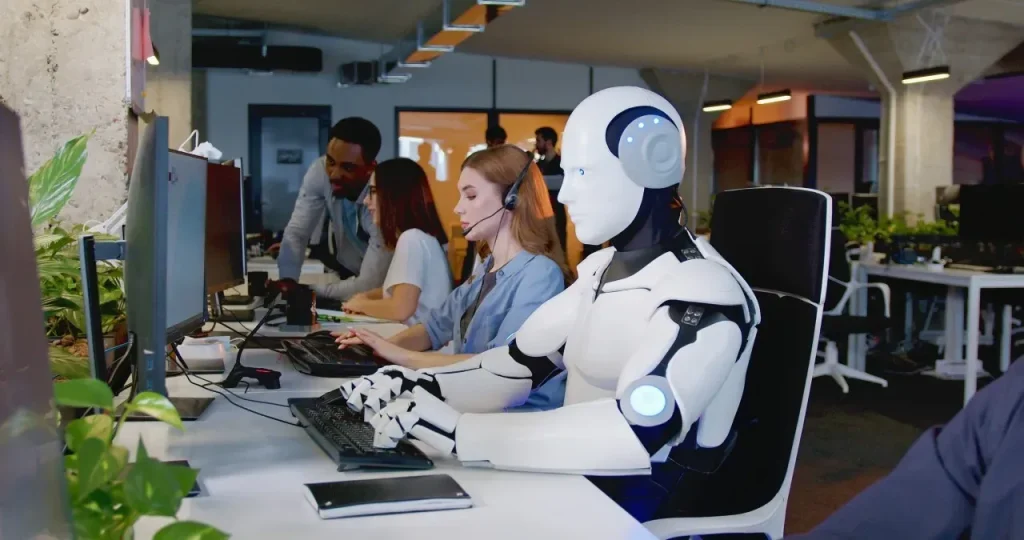The Future of work technology is redefining how teams connect, decide, and create, turning high-level strategy into practical, day-to-day actions that shape project outcomes and organizational learning. From remote work technology to robust collaboration tools, leaders are embracing digital transformation and hybrid work trends to support dispersed talent, synchronize workflows, and sustain momentum across time zones. AI in the workplace acts as a capability amplifier, automating routine tasks, surfacing actionable insights, and freeing cognitive bandwidth for teams to experiment, learn, and innovate with greater confidence. As organizations deploy these advances, the boundary between formal work, informal learning, and collaborative problem-solving becomes gradually permeable, enabling faster decisions, better alignment, and a culture that supports continuous improvement. This shift matters for productivity and culture alike, prompting leaders to design inclusive, secure, and scalable ecosystems where people can thrive with the right tools, governance, and opportunities for growth.
Looking ahead, this shift in the workplace tech landscape favors integrated platforms that empower distributed teams and streamline communication. Instead of focusing on a single gadget, organizations adopt intelligent automation, cloud-based services, and collaborative ecosystems that facilitate flexible work under changing conditions. The broader digital transformation becomes a cultural journey, where leadership, governance, and learning culture align to sustain productivity. By embracing user-friendly interfaces, security-by-design, and data-driven decision making, teams can achieve high engagement and resilient performance across locations.
Future of work technology: Elevating Collaboration Across Remote and Hybrid Teams
The future of work technology is being powered by an integrated suite of tools that makes remote work technology feel seamless. Cloud-based platforms, secure collaboration tools, and both real-time and asynchronous communication accelerate decision-making, preserve context, and keep distributed teams in sync across time zones.
As hybrid work trends become the norm, organizations invest in a coherent ecosystem that couples technology with culture. By prioritizing user-friendly interfaces, data security, and interoperability, teams reduce friction and unlock continuous learning, turning digital transformation into a living practice rather than a one-off project.
Digital Transformation, AI in the Workplace, and Collaboration Tools for Modern Teams
AI in the workplace acts as a force multiplier, handling repetitive tasks, summarizing meetings, and surfacing insights that guide collaboration. When paired with collaboration tools and project platforms, AI reduces cognitive load and frees people to focus on higher-value work while preserving the human touch in knowledge sharing.
Digital transformation is not merely deploying software; it is shaping processes, governance, and culture. Effective use of collaboration tools within a digital-first strategy enables remote and on-site teammates to align on goals, track decisions, and maintain security—demonstrating how technology amplifies teamwork in a modern workforce.
Frequently Asked Questions
How does remote work technology influence the Future of work technology and the use of collaboration tools in hybrid work trends?
Remote work technology enables distributed teams to collaborate in real time and asynchronously using collaboration tools, improving visibility, alignment, and speed. In hybrid work trends, secure access from anywhere supports productivity and continuity, a core part of the Future of work technology.
In what ways does AI in the workplace drive digital transformation and advance the Future of work technology for teams?
AI in the workplace augments human effort by automating repetitive tasks, surfacing actionable insights, and personalizing learning paths within digital transformation. When paired with governance and upskilling, AI accelerates teamwork and enables smarter decision-making—central to the Future of work technology.
| Key Point | Description |
|---|---|
| Definition and focus | The Future of work technology enables daily collaboration, learning, and productivity through tools and platforms, not a single gadget, shaping how work unfolds across industries. |
| Drivers and trends | Cloud-based platforms, AI-powered assistants, data analytics, and secure, scalable collaboration tools drive access from anywhere and smarter teamwork; remote/hybrid work has become mainstream. |
| Remote/hybrid work evolution | Video conferencing, asynchronous messaging, and co-editing suites support real-time and asynchronous collaboration, integrated with project management to keep dispersed teams aligned. |
| AI as a force multiplier | Intelligent assistants, chatbots, and predictive analytics automate routine tasks, summarize conversations, surface insights, and personalize learning paths to reduce cognitive load. |
| Digital transformation as culture | Successful adoption requires a clear vision, upskilling, governance, experimentation, and alignment with organizational values to foster continuous learning and collaboration. |
| Practical implications for teams/individuals | Faster decision-making, greater visibility, and equal access for remote teams, with tools that reduce mundane tasks while requiring thoughtful implementation and ongoing training. |
| Designing collaboration ecosystems | Map workflows, choose interoperable tools, set communication norms, and weave security/governance into a coherent system rather than a collection of isolated apps. |
| Security, privacy, governance | Robust authentication, least-privilege access, security-by-design, audits, and employee education to protect data and maintain trust across distributed work. |
| Skills, learning, adaptability | Continuous learning, data literacy, collaboration skills, and adaptability to new tools drive adoption and meaningful outcomes. |
| Measuring impact | Beyond usage metrics: time-to-decision, cross-functional collaboration, knowledge retention, and employee experience to guide optimization. |
| Trends ahead | Intelligent automation, immersive collaboration, 5G/edge computing, and human-centric design will shape next‑gen work environments. |
Summary
HTML table with key points about the Future of work technology.

